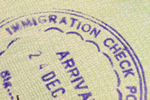Expat families in Split call for an international school

Expat families in Split call for an international school
Formerly just a popular tourist destination for its charming Old Town, the Croatian city of Split is finally becoming an international destination for expatriates working for newly-arrived companies. As a result, the expat community is expanding fast and includes families, with many essential services now in place although more attention needs to be given to schooling.
In Croatia, it’s actually illegal to home-school one’s children, thus taking away the options of many expat families concerned about their kids’ education. Sending expat children to local schools unable to present an English language education is considered by some to be character-building as it forces the learning of a foreign language, but it can also be destructive, especially for children who’re less than ultra-confident. Many expatriate parents in the city believe there’s now a real need for an international school, and are pointing out that a good number of wealthy Croatian parents might be more than happy to enrol their kids as well. There are only three international schools in the whole of the country, all of which are oversubscribed and have a good mix of expat and local children.
A good few expat parents believe the supposed reluctance of the city fathers to support an international school might stem from an unwillingness to accept a greater number of expats in the city. Others are pointing out that international education contributes a fair amount to the economies of countries at present expanding the numbers of such schools. It has to be said that a small number of Split’s inhabitants believe Croatia has absolutely no need of expats or even of tourists, unless they happen to be Croatian by descent. On the other hand, tourists from the USA spent around a billion euros in the country this year, an amount which represents 1.5 per cent of the country’s GDP.
Related Stories:
- Expats find peace in the covid-19 refuge of Dahab town - July 20, 2020
- Expats in Malaysia still banned from overseas travel - July 17, 2020
- HSBC Asia to cut back on internal expat relocations - July 16, 2020
- China hits its expats with 45 per cent tax on overseas earnings - July 15, 2020
Latest News:
- Tips on a trouble-free relocation as an expat overseas - July 20, 2020
- Expats find peace in the covid-19 refuge of Dahab town - July 20, 2020
- Is Kuwaitization the unintended result of the oil price crash? - July 20, 2020
- Expats unhappy abut changes to Korean points-based visa system - July 17, 2020
- Chiang Mai and Bangkok no longer bargain locations for expats - July 17, 2020
- Expats in Malaysia still banned from overseas travel - July 17, 2020
- Vietnam welcomes expats to its safe, affordable lifestyle - July 16, 2020
- Asian tiger economies reach out to expats in Hong Kong - July 16, 2020
- HSBC Asia to cut back on internal expat relocations - July 16, 2020
- Tips on integrating for newly-arrived expats - July 15, 2020


